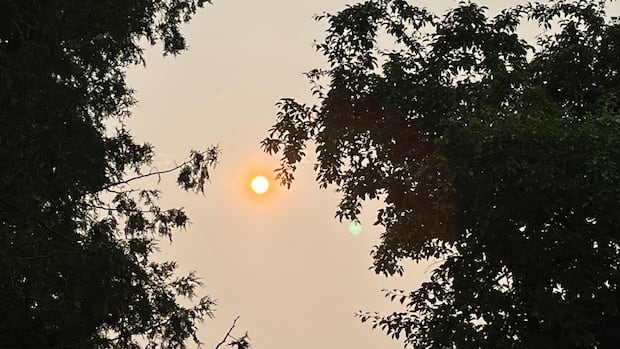OttawaA spokesperson for the environmental group says Ottawa and the Outaouais region will face the same problems, but there is little co-operation between the two on this issue.Recent report warns of increased respiratory illnesses, heart disease, deadly heatstrokesCBC News · Posted: Sep 17, 2025 4:00 AM EDT | Last Updated: September 17Outaouais officials warning about the health impacts of extreme weather eventsThe Outaouais health network is warning that the increasing frequency and intensity of extreme weather events will have severe consequences for residents’ health. The agency recently conducted a study with projections for the next 50 years. In the last decade, the Outaouais region has suffered two major floods, several heat waves, six tornadoes and a derecho. Based on a recent study by the Centre intégré de santé et de services sociaux de l’Outaouais (CISSSO), this is just the beginning. The health authority’s study documents the growing effects of climate change on public health and makes projections for the next 50 years.It says there is “no doubt” that climate change is the biggest threat to human health this century, and that it will mean more anxiety, respiratory illnesses, heart disease and deadly heatstrokes.Dr. Guillaume Campagné is one of the authors of the study.”We will have more extreme weather events in the future, more intense, more frequent, and our vulnerable populations will suffer the consequences even more than today,” he warns.Well-identified risksThe study identifies seven main climate risks but focuses on those to which the Outaouais region is especially vulnerable: extreme heat waves, floods, forest fires, and strong winds.Heat waves, in particular, are set to have the most direct impact on public health by increasing the number of heatstroke and heat-related deaths.Based on the study, certain groups are more vulnerable to this threat, especially children and seniors.Benoit Delage is the executive director of the Outaouais Regional Council for the Environment and Sustainable Development. “This report shows us where we should work more, where we should plant trees,” he said. “Near retirement homes, near schools, in lower-income neighbourhoods.”Benoit Delage is the Executive Director of the Outaouais Regional Council for the Environment and Sustainable Development (CREDDO). (Aya Dufour/CBC)The Ottawa area will face the same problems, according to Delage, although he says there isn’t much co-operation between the two regions on this issue.”The river is really, really deep,” he says. “We need to work together more between the two sides of the river.”CISSSO is already preparing a second study focusing on solutions that can be implemented in the healthcare network in response to climate change. The City of Ottawa is working on a climate resiliency strategy, and it recently held public consultations with the goal of finalizing it by year-end.With files from Radio-Canada’s Isabelle Gobeil, Fatoumata Traore and Alexandra Angers
Friday, 6 Feb 2026
Canada – The Illusion
Search
Have an existing account?
Sign In
© 2022 Foxiz News Network. Ruby Design Company. All Rights Reserved.
You May also Like
- More News:
- history
- Standing Bear Network
- John Gonzalez
- ᐊᔭᐦᑊ ayahp — It happened
- Creation
- Beneath the Water
- Olympic gold medal
- Jim Thorpe
- type O blood
- the bringer of life
- Raven
- Wás’agi
- NoiseCat
- 'Sugarcane'
- The rivers still sing
- ᑲᓂᐸᐏᐟ ᒪᐢᑿ
- ᐅᑳᐤ okâw — We remember
- ᐊᓂᓈᐯᐃᐧᐣ aninâpêwin — Truth
- This is what it means to be human.
- Nokoma











